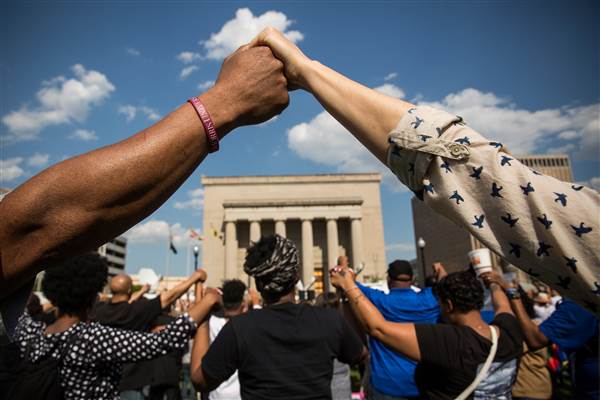
By Whitney Parnell ~ NBC BLK
Last week, Nabra Hassanen—a brown Muslim teenager—was brutally killed after leaving her Mosque with her peers. Days before, yet another police officer was acquitted in the killing of Philando Castile, a Black man who, with his girlfriend and her four-year-old daughter in the car, had been told that he was pulled over for a broken brake light.
These stories have made national news, sparking outrage and prompting conversations around the racial implications for the victims’ respective communities.
A few months ago, my older sister witnessed a man approach two women wearing hijabs who were stopped at a traffic light, call them the devil, and then leave. That same month, my youngest sister had a racial profiling experience while driving with two friends near their university. She said she deliberately followed the steps of the traditional “Talk” that Black parents give their kids about how to avoid violent confrontations when stopped by the sometimes hostile police.
These are not isolated encounters. Although more severe examples may draw media attention, these demonstrations of racial bias are literally all around us—around the corner, and at the next stop light.
As people of color, we may be the victims by direct experiences, or from the overwhelming collective trauma that hits each time we hear about yet another racist act against someone who looks like us. We deal with our own situations, but we must also be empathetic allies towards other communities of color facing challenges that we do not.
I can feel this intersection through personally unpacking the aforementioned examples. I identify as both a Black person and as a person of color. The categories clearly overlap, but they are not the same. As a Black woman, I am aware that some will consider me threatening based on my ethnic identity. However, I will likely not encounter the same type of targeting as a person color of Middle-Eastern descent.
While I have always recognized the differences in experience between various people of color, I could never quite articulate them in clear terms until I was recently introduced to the concept of the “Three Pillars of White Supremacy.”
It suggests that three types of racism have evolved over time in the United States: (1) Anti-Blackness, originating from slavery; (2) Indigenous genocide, resulting from colonization; (3) and Orientalism, the fear of “others” attempting to infiltrate and threaten U.S. status quo.
These groupings allowed me to conceptualize my place in the world as both a Black person, and as a person of color. I have had discussions with friends and coworkers of color about our common experiences of isolation, negative assumptions, and overall “othering”—the constant hyperawareness of our minority status in various environments.
I feel a special sense of camaraderie with other people of color who are present in settings where I would otherwise feel uncomfortable and alone.
Read the entire story here.

